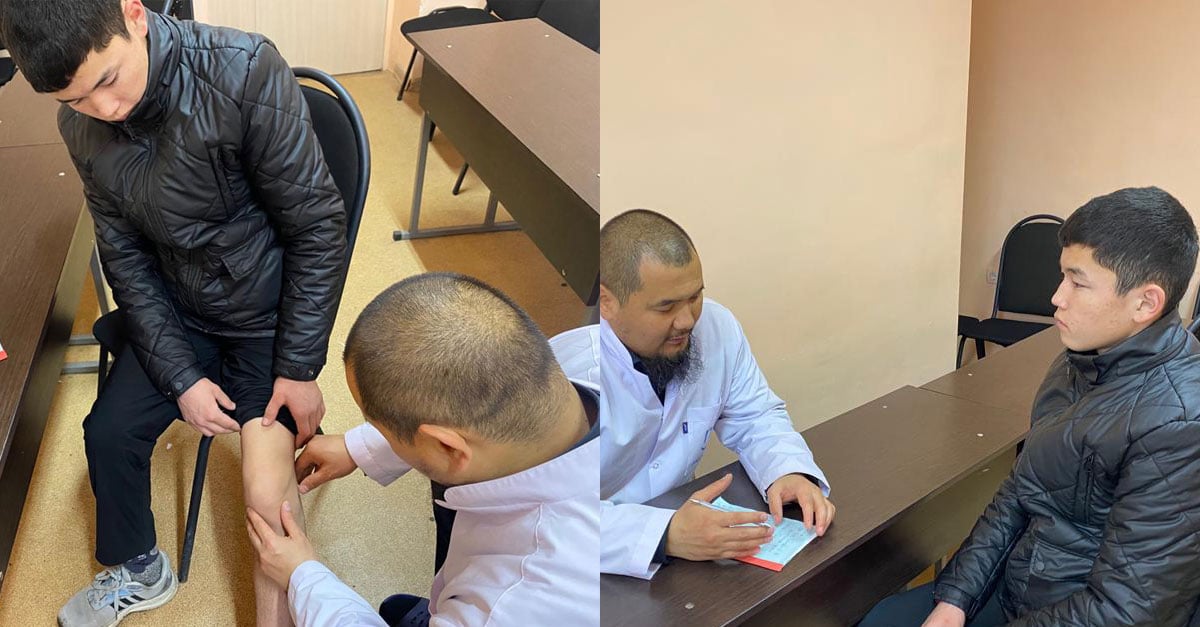Nursultan has severe hemophilia A. Because he received minimal treatment as a child, he suffered from frequent bleeds, and, as a result, he has arthropathy of both knee joints. His brother also has hemophilia. Living with hemophilia—and seeing how it affected both himself and his brother—instilled in Nursultan a strong desire to try and make a difference by becoming a physician.
Despite continuing bleeds in his knees, Nursultan was able to study hard and was accepted to medical school. His hard work continued there, and he progressed in his studies—but missed school because of bleeds in his knees. At this point, the specialists at the hemophilia treatment centre (HTC) suggested that he go on low-dose short-term secondary prophylaxis with factor concentrate—provided by the WFH Humanitarian Aid Program—to minimize further school absences. The treatment was successful: acute bleeds stopped almost entirely, and he was able to concentrate fully on his medical studies. The therapy also improved Nursultan’s quality of life drastically. The success of this prophylactic treatment in Kyrgyzstan is further proof that predictable donations can help make sustainable care possible.
Since 2015, nearly 28 million IUs of factor have been donated to Kyrgyzstan. Just over 3.3 million IUs of factor were donated in 2022 alone. To find out more about the WFH Humanitarian Aid Program, please click here.
About the WFH Humanitarian Aid Program
The WFH Humanitarian Aid Program improves the lack of access to care and treatment by providing much-needed support for people with inherited bleeding disorders in developing countries. By providing patients with a more predictable and sustainable flow of humanitarian aid donations, the WFH Humanitarian Aid Program makes it possible for patients to receive consistent and reliable access to treatment and care. None of this would be possible without the generous support of Sanofi and Sobi, our Founding Visionary Contributors; Bayer, CSL Behring and Roche, our Visionary Contributors; Grifols, our Leadership Contributor; and Takeda and Japan Blood Products Organization, our Contributors. To learn more about the WFH Humanitarian Aid Program, visit www.treatmentforall.org.













